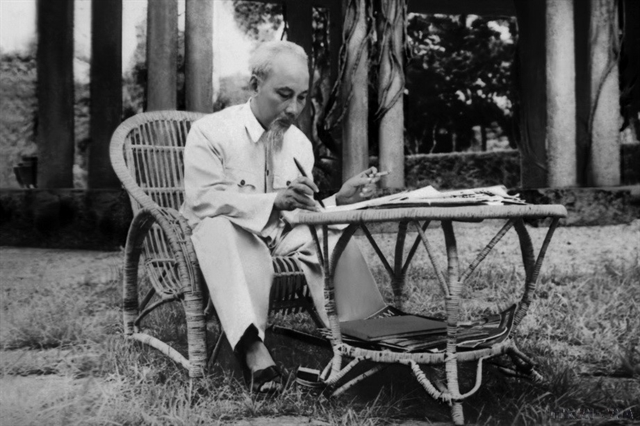 Politics & Law
Politics & Law

 |
| MORE AT RISK: Online scams, deception and manipulation are becoming an underlying storm threatening cybersecurity. VNA/VNS Illustrative photo |
Việt Nam’s hosting of the signing ceremony for the United Nations Convention against Cybercrime (known as the Hanoi Convention) on October 25–26 holds great significance, demonstrating the country’s commitment and pioneering role in promoting global cybersecurity and safety.
Specific campaigns to fight online scams have been launched this year as concrete actions that embody the spirit of the convention and foster trust in online safety.
Online scams, deception, and manipulation are becoming an underlying storm threatening cybersecurity and social well-being in Việt Nam, causing severe damage not only financially but also to people’s mental health.
According to a report released by the National Cybersecurity Association (NCA) in late 2024, Việt Nam is among the countries most heavily affected by cybercrime. The rate of potential victims is also alarming: one out of every 220 smartphone users becomes a victim, and 70 per cent of citizens are exposed to at least one scam call or message each month.
The Cybersecurity and High-Tech Crime Prevention Department (also called A05) under the Ministry of Public Security estimated that the total damage reached VNĐ18.9 trillion (US$717.5 million) in 2024, double the figure of 2023.
In that year, the department handled more than 1,500 online fraud cases, mainly involving asset appropriation through the internet. Last year, the number of cases continued to soar, with over 22,200 reports of online scams recorded in only the first nine months.
Cybercriminals spare no one — from school students and university learners to working adults -- even tech-savvy individuals. However, 2025 has witnessed a worrying shift as perpetrators have increasingly targeted young people, particularly students, who often lack essential life skills and are highly susceptible to psychological manipulation.
These issues serve as a warning and a reminder that no one should have to face crime alone, underscoring the power of connection. When families, friends or communities intervene and provide timely support, victims can be pulled back from the edge of danger.
On October 10, Việt Nam’s Digital Trust Alliance launched "Not Alone", a nationwide initiative aimed at protecting children and young people from online risks and building a safer and more humane digital environment.
The campaign is jointly organised by A05, the NCA and the Hà Nội People’s Committee (Administration), with the sponsorship of the ministries of Public Security, Education and Training, and Health, as well as the United Nations Office on Drugs and Crime and the UN Children’s Fund.
A05 Director Major General Lê Xuân Minh said that this was a vivid demonstration of how Việt Nam brings the spirit of the Hanoi Convention to life – transforming international commitments into concrete actions while sending a strong message about Việt Nam’s sense of responsibility towards the international community in addressing global challenges. At the same time, it would help realise the Communist Party of Việt Nam and State’s policy of caring for and protecting children and young people in the era of science and technology.
Meanwhile, another campaign against online scams is also being carried out nationwide from October to the end of the year, conveying the message "Be slower to stay safer" encouraging people to verify information before sharing or making transactions, improve their account and device protection, report suspicious behaviours and support one another in maintaining a safe cyberspace.
The drive is intended to improve digital awareness and skills within the community, especially young people, who are frequent users of social networks and also vulnerable to sophisticated scams.
A05 said this campaign would be a new stride in public–private partnership towards building a safe, transparent and trustworthy cyberspace in Việt Nam, as part of efforts to implement the international commitments in the Hanoi Convention. VNA/VNS




